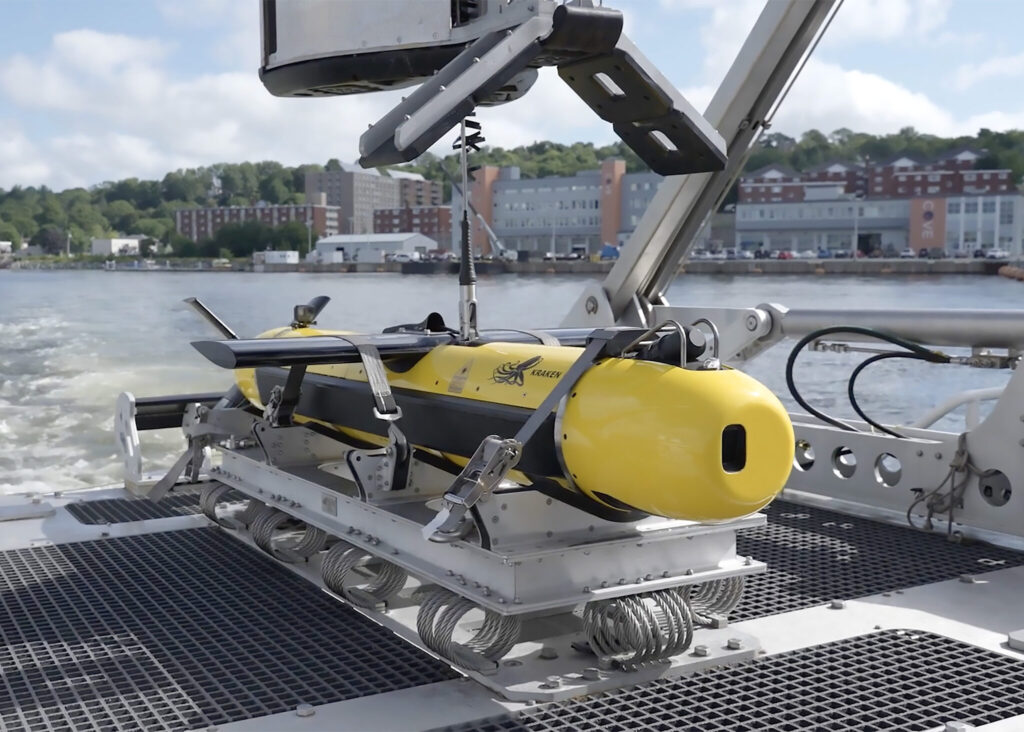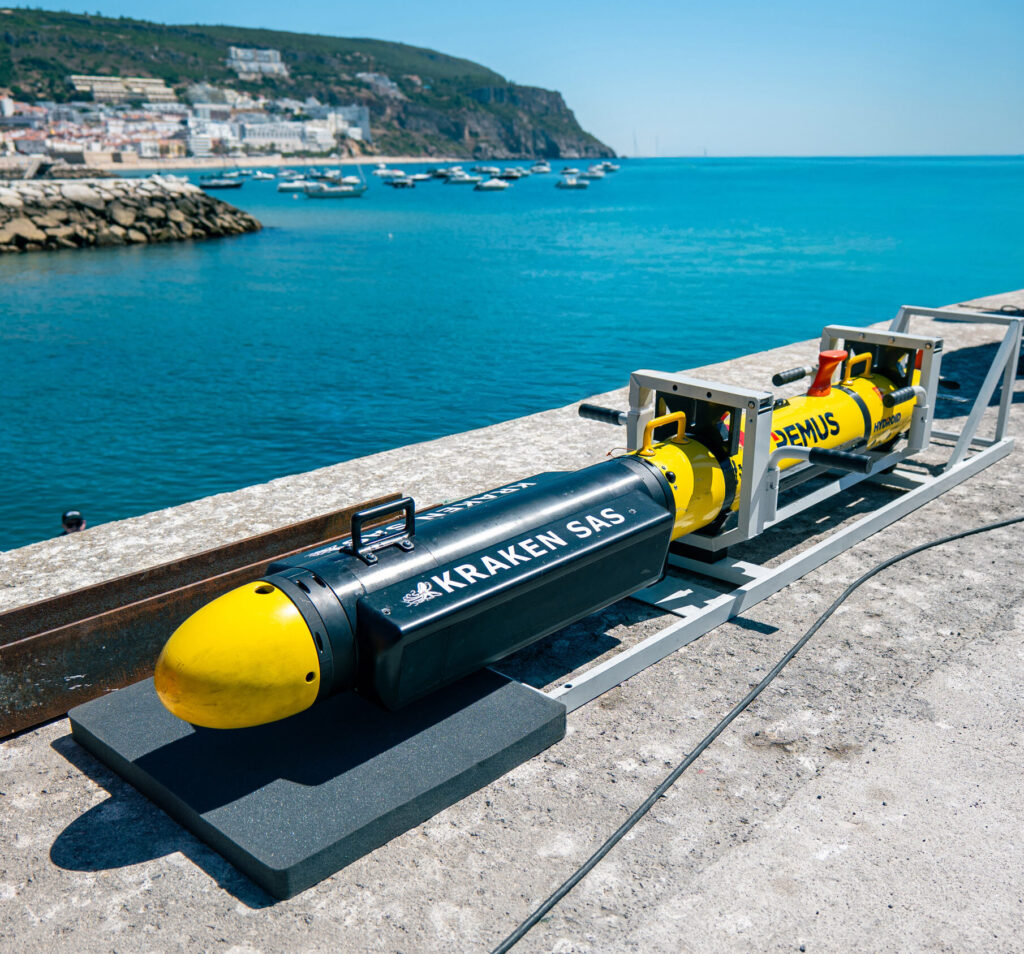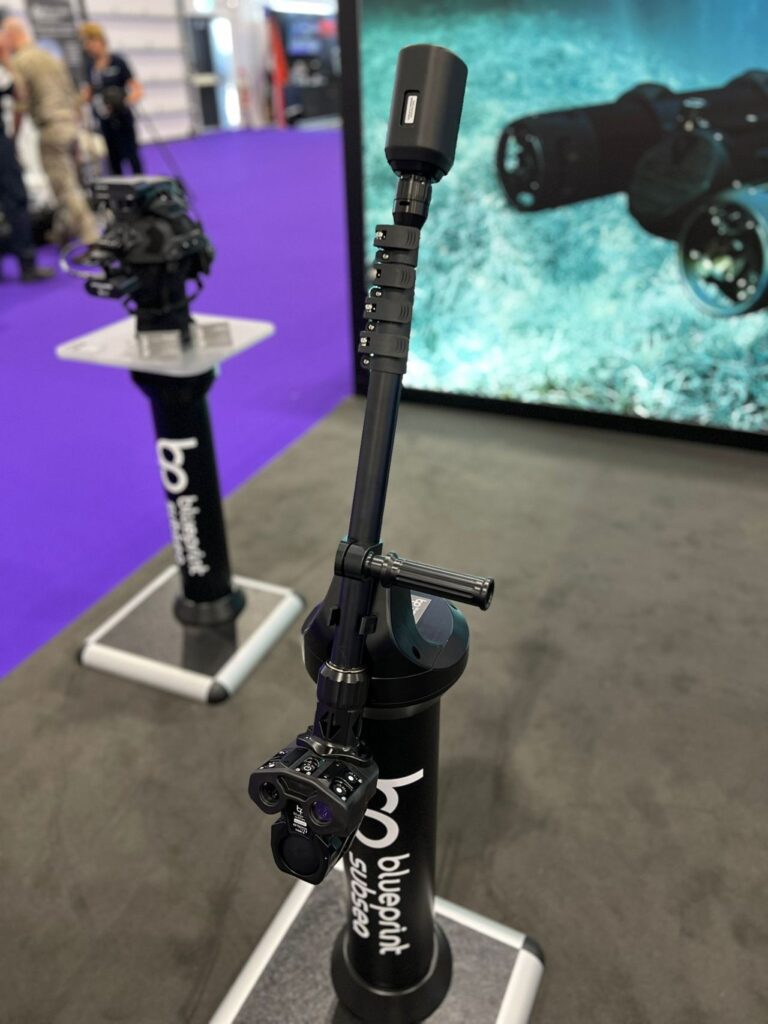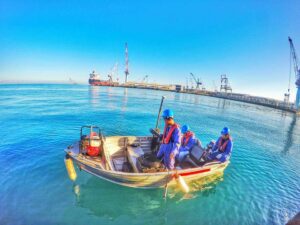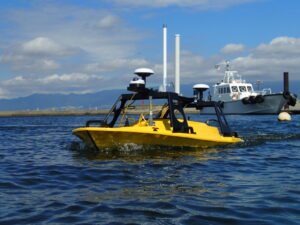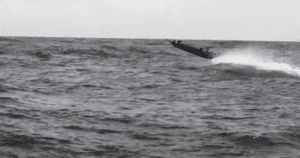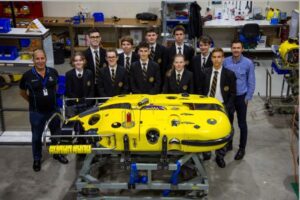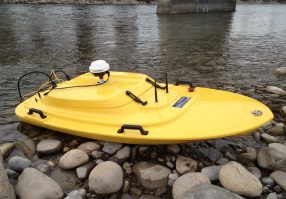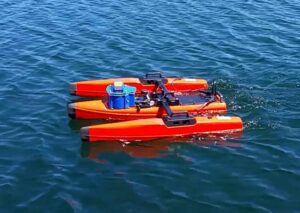MARKETS
Case Study: Darwin Pile Driving
We are an Australian company with a growing international reputation
focusing on the design and servicing of high quality underwater
electronics used in harsh environments.
Darwin Pile Driving
BlueZone Group provided leading environmental services consultant PGM Environment with engineering services support for studies associated with underwater noise risk mitigation measures for development work in Darwin Harbour. This centred upon pile driving required to install ship facilities and navigation markers. It was understood that certain iconic marine fauna within Darwin Harbour, notably various species of dolphins, as well as dugongs and turtles, were suspected of being sensitive to the noise from marine piling works.
PGM Environment proposed that an acoustic propagation estimation tool be developed to support first-order noise propagation predictions and calculations of noise exposure to determine appropriate mitigation measures. The BlueZone engineering team responded by drawing on a strong background in acoustic theory developed from OEM training for a wide variety of underwater sensors and systems including Acoustic Doppler Current Profilers (ADCPs), 2D and 3D sonar systems and Multi Beam Echo Sounders.
BlueZone rapidly developed an algorithm to provide received level noise predictions using first-order acoustic propagation methods with limited inputs for the purpose of obtaining rapid representative results. The results obtained were used to help guide preliminary evaluations and analysis of likely effects on marine fauna.
PGM Environment Principal, John Polglaze, said that he was extremely pleased with the result obtained using the prediction algorithm developed by BlueZone. “The normal approach is to undertake extensive modelling of expected acoustic propagation conditions and predicted noise source characteristics before defining mitigation zones”, said John, “Modelling may further be required to be verified by on-site acoustic monitoring and these activities could be expected to take several months and cost in the order of $50 000 to $100 000”. The BlueZone approach was faster and completed at less cost.
John said that the prediction tool developed by BlueZone enabled the customer to leverage significant studies and research already undertaken for the nearby INPEX LNG facility piling works and demonstrated that the acoustic exposure risk to marine fauna was minimal and manageable. The net benefit was a low risk approach with significant cost savings to the customer, with a project time measured in weeks rather than months. This resulted in a “fit for purpose” conservative exposure estimate for marine fauna from which optimised risk mitigation methods were developed.
Featured Products
Kraken’s KATFISH is an advanced, actively stabilized Synthetic Aperture Sonar (SAS) towfish system engineered to deliver exceptional seabed intelligence
Read moreKraken Robotics Synthetic Aperture Sonar (SAS) (MP-SAS)
Kraken’s Synthetic Aperture Sonar (SAS) represents a major advancement in underwater imaging technology, combining high‑resolution imaging and bathymetric mapping in a single system.
Read moreArtemis TOM‑S – Tactical Observation Mast (Standalone)
The Artemis TOM‑S (Tactical Observation Mast – Standalone) is a next‑generation handheld surveillance solution engineered for operators who require reliable, covert above‑water imaging in dynamic environments.
Read moreLatest News
Precision Under Pressure: BlueZone’s Eight‑Day Subsea Success
Eight Days, Ten Cables, One Epic Holiday Turnaround While most businesses were winding down for the holidays, BlueZone was powering up. As December 2025 raced toward Christmas, our workshop...
Read MoreRapid, Reliable, Ready: The Littoral Riverine Survey System in Defence Hydrography
When military operations hinge on understanding what lies beneath the waves, deployable hydrographic survey systems like the LRS become essential tools for safe, informed decision‑making. Military hydrographic...
Read MoreKraken MP‑SAS: Portable Synthetic Aperture Sonar for Modern Maritime Missions
With Kraken’s MP‑SAS and BlueZone Group’s trusted in‑country support, Australian operators can now access a proven, portable SAS solution built for modern maritime missions. As the demand...
Read MoreBlueZone Perth Is on the Move — Literally
BlueZone is expanding its footprint in Western Australia with a new, bespoke Perth facility designed to boost local capability, streamline support, and fuel future growth. As we turn over...
Read More
